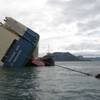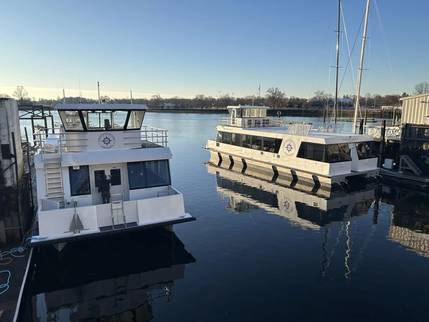Executives from Colonial Pipeline, which runs the main fuel artery for the U.S. Atlantic Coast, will be questioned by customers and regulators on Wednesday after worsening congestion spawned secondary markets for space on the system, driving up costs for wholesale diesel and gasoline buyers.
Refiners, retailers and trading houses have jockeyed to move barrels in an increasingly competitive race for space on the line since a 300,000 barrel per day expansion between 2011 and 2013 failed to ease traffic as shippers increased on the 2.5 million bpd system.
Customers including Costco Wholesale Corp complain that so-called line space trading adds business costs, prompting a rare hearing at the Federal Energy Regulatory Commission.
"We have very sophisticated customers. Of course they've adapted to the system as it is. They are serving the marketplace," Colonial's Chief Financial Officer David Doudna told Reuters.
Competition is so tough that so-called line space - a spot market - has sold for 15 cents or more per gallon. That means the person who buys half of another's 100,000 barrels of allotted space spends $314,999 on top of Colonial's per-barrel rate to move fuels.
That could amount to millions of dollars a year in extra costs.
Even costlier is a more long-term secondary market that sprung from Colonial's perpetual crowding: shipper history transfers that allow newer players a way to access space allocated to bigger players.
FERC may have to help resolve the long-simmering conflict over access.
Although Colonial does not participate in or profit from such shipper-to-shipper trading, Elisabeth Myers, an adjunct law professor at American University, said the company benefits from the efficiency.
"They do in fact have skin in the game because this is what's making scarcity of capacity on their system workable for shippers," she said.
Colonial countered that it does not benefit from that and aims to provide a fair system.
Ahead of the hearing, Colonial CFO Doudna said it was quietly shopping a multibillion-dollar expansion proposal to shippers.
Doudna conceded an expansion would help because newer shippers could get space without paying others for it. An expansion would take three to five years.
The privately-held carrier, owned in part by affiliates of Koch Industries, Royal Dutch Shell, KKR & Co LP, is in no rush, he said.
"We need to find the right project at the right price with the right commitments," he said.
(Reporting by Kristen Hays; editing by Grant McCool)














